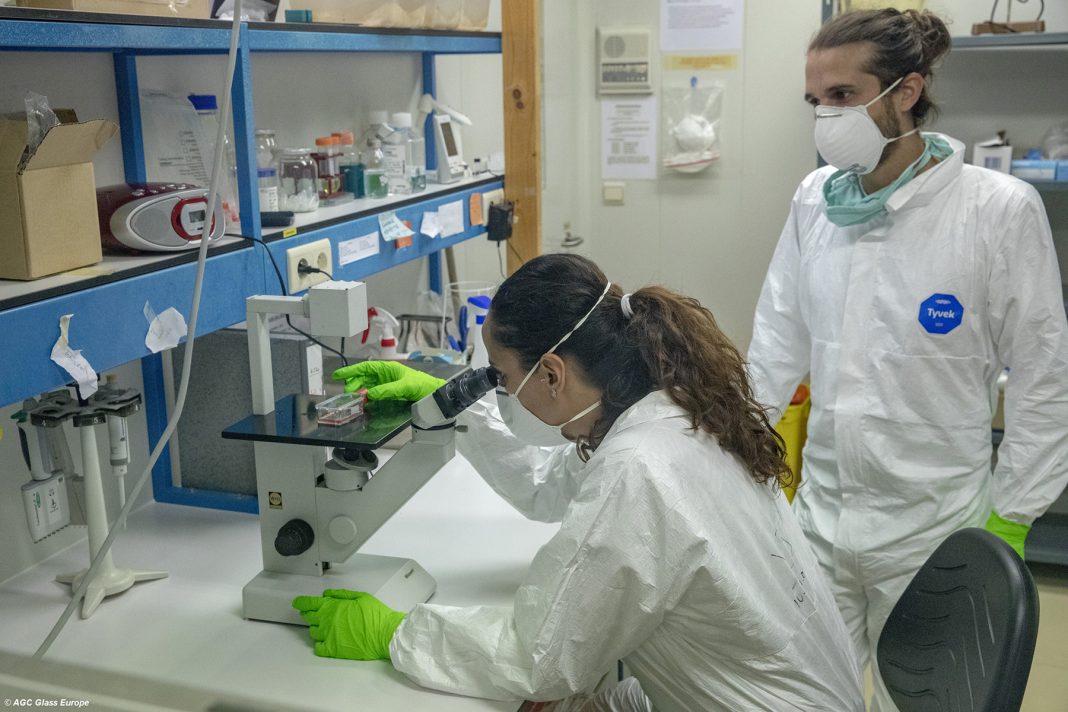AGC Glass Europe had published a video to support research findings that Covid-19 viral particles stay active for a shorter time on Planibel Easy coated glass that has been exposed to daylight than on float or acrylic glass.
The manufacturer reports that a study published in the Coatings Journal with support from AGC was done on different materials ranging from metallic materials to float glass, acrylic glass (such as Plexiglas, Perspex etc.) and Planibel Easy coated glass.
The result shows the time taken for the number of infectious viral particles TCID50 to decrease, and demonstrates that Covic-19 viral particles stay active for a shorter time on Planibel Easy coated glass previously exposed to daylight (photocatalytic effect).
The study used real human Covid-19 viral particles at same concentration as the actual viral load observed in a cohort of patients infected with Covid-19.
The time needed to inactivate 90% of the viral particles is 37.5% shorter for Planibel Easy exposed to daylight than for float glass or acrylic glass. This means that using Planibel Easy greatly reduces the risk of viral transmission when we touch the surface.The video, with English subtitles, can be seen at:
https://www.youtube.com/watch?v=5jw_kW_j9FY












